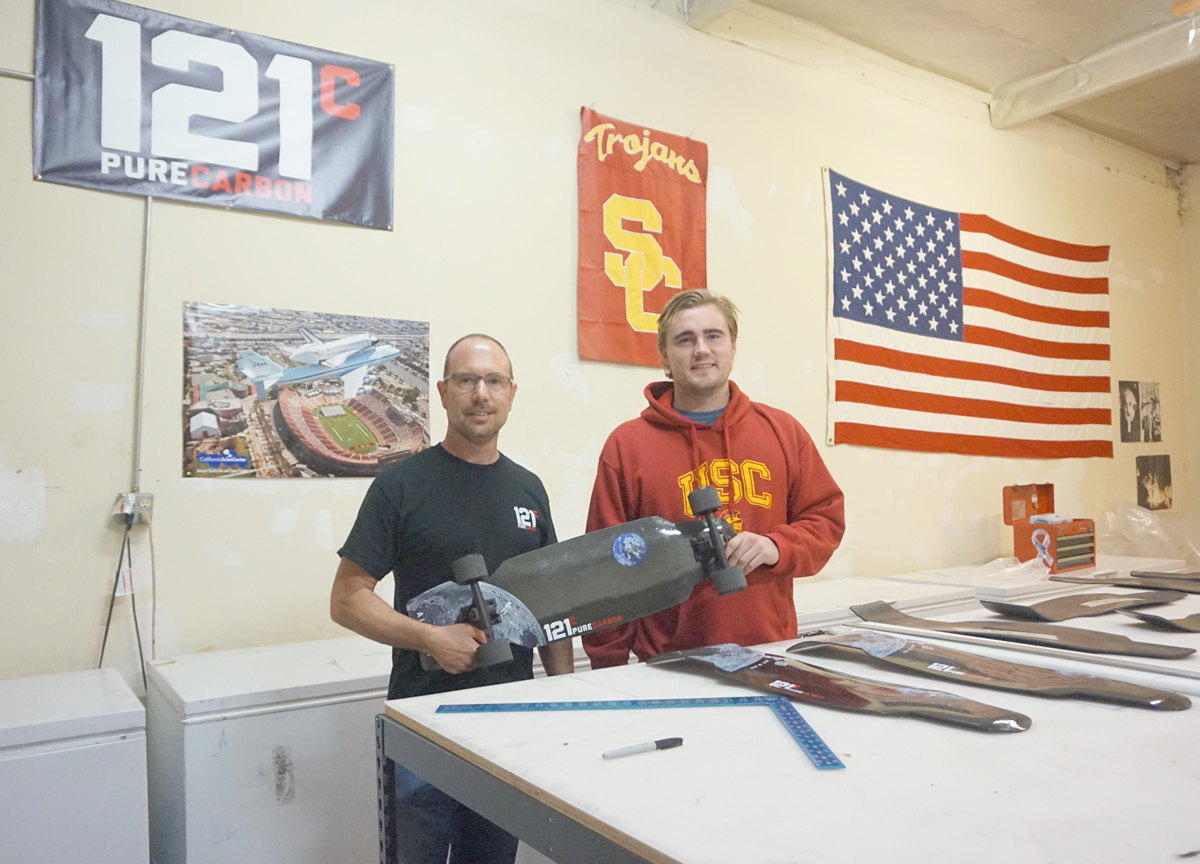Student designs high-tech boards with Rocket Lab
In the workshops of the USC Rocket Propulsion Laboratory, one student is designing the skateboard of the future.
Ryan Olliges, a senior majoring in aerospace engineering, is the founder of 121C Boards, a company that creates skateboards and longboards using recycled material.
Olliges originally thought of the idea for 121C as a freshman in RPL, when he noticed how frequently aerospace companies threw away unnecessary carbon fiber.
“I first noticed the problem in the Rocket Lab on a small scale and thought it would be cool to make a skateboard,” Olliges said. “When I noticed how big of a problem it was on an industry scale for companies like Boeing and anybody else who uses composites, I knew we could do something to solve this problem.”
Olliges, a lifelong snowboarder and wakeboarder who took up skateboarding when he arrived at USC, decided to draw on his experience shaping longboards in high school to create 121C. Although he came up with the idea his freshman year, it wasn’t until his sophomore year when he partnered up with Greg Autry, an assistant professor of clinical entrepreneurship with the Lloyd Greif Center for Entrepreneurial Studies at the Marshall School of Business, that the company started to take shape.
This, in addition to the support system the Rocket Lab has provided, has allowed Olliges to build his business into what it is now.
“[RPL] has been a great support system,” Olliges said. “The lab space on campus has been generous enough to let me keep some of my projects there and work alongside with them.”
Currently, the company is looking to expand its current product line using Kickstarter, as well as create recycled materials that can be used for products besides skateboards.
“We’ve got a couple contracts lined up take off with that,” Olliges said. “One of them is a briefcase company. They want us to make briefcase panels out of carbon fiber and then we’ve got a couple different companies that want us to make other parts.”
Olliges attributes most of the company’s success to how cheap 121c is able to make the boards by recycling the material it uses rather than buying it.
“If somebody was to make this board with material they bought from suppliers as opposed to material that they’re upcycling then it would cost them about $1,000,” Olliges said.
However, according to Olliges, even though the material is cheap, it still functions well in skateboards.
“It turns out that [the material] is actually really good for skateboarding and a lot of other things because it’s incredibly lightweight and much stronger than your standard consumer grade carbon fiber resin,” Olliges said. “For skateboarding, that means you can pop in and out of your turns and you can’t break your skateboard.”
But for Olliges, the greatest challenge may have been figuring out how to create the boards in the first place. This is most evident in the name of 121c, which is derived from the original cure temperature of epoxy, 121 degrees celsius.
“It took me forever to get this thing to finally heat up. I burned a bunch of stuff, caught things on fire, melted my tooling and then finally got it right,” Olliges said. “It was just a very long and arduous process, so after it finally heated up to 121c the name just kind of just stuck.”

